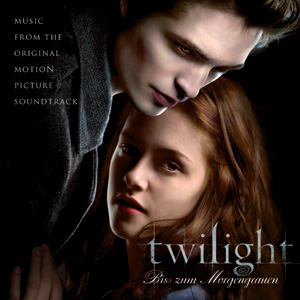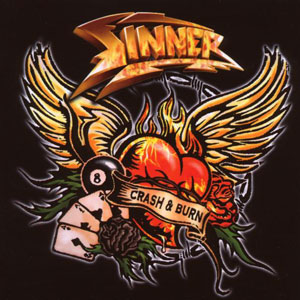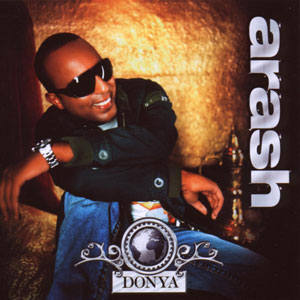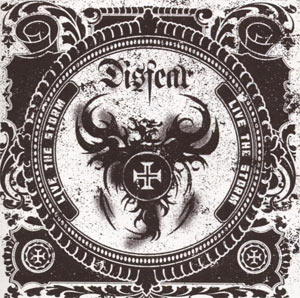|
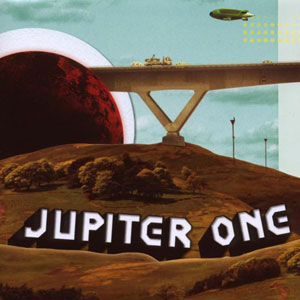
WEBSITE: www.jupiterone.com
 |  |
Percolating with the nervous energy of the Talking Heads, the stuttering punk-funk of Gang of Four, and the pulsating synths of the Cars, Jupiter One injects colorless indie rock with a bracing rhythmic pulse, two-fisted pop hooks, and East Coast swagger.
K Ishibashi and Zac Colwell, the founding members of Jupiter One, are no strangers to the rock ‘n’ roll circus. In fact, that’s sort of where they met. “It was like Barnum and Bailey but classier and only one ring," Colwell says, remembering the bus-and-truck outfit he joined for a national tour in 2000.
"It was an amazing show with lots of superhuman people." One of them turned out to be another musician – Ishibashi, a young violin player who shared eclectic interests in Indian classical music, jazz, funk and the avant-garde. As Ishibashi now recalls, “Zac was playing every woodwind imaginable (tenor sax, alto, flute, clarinet, sh'nai). We bonded in our love for soul and contemporary music, and that's really how Jupiter One started."
After the big top folded, the duo hunkered down in Zac’s hometown of Austin before moving to New York in 2003 where Jupiter One would officially form. In New York K re-connected with girlfriend Mocha, a Japanese-born keyboardist and fellow violinist who also joined the group, adding a decidedly female perspective to the mix. Jupiter One further evolved with the arrival of drummer Dave Heilman, who rounds out their sound with the distinctive thump the quartet needed. (Fun fact: After a long courtship and studying violin together at Boston’s Berklee College of Music, K and Mocha are now husband and wife.)
Today, Jupiter One produce an electrifying, invigorating sound that recalls the pogo-party frenzy of the late ’70s-early ’80s underground club scene with a contemporary guitar punch that has drawn comparisons to the Killers, Franz Ferdinand, and Bloc Party. Their live shows are marked with a manic intensity, wowing audiences and gaining new fans with their boundless enthusiasm and irresistible charm.
Listeners to Jupiter One's self-titled debut will immediately note that the musicians have no lack of punch. Even as they developed their sound in the immediate wake of guitar-oriented rock acts like The Strokes, the players heard a different style emerging from their incessant rehearsals and jam sessions. Listen to a standout track like Colwell’s "Kamikaze Pilot" and you can hear it fully realized: what begins as a classic 1960s smoky organ groove becomes ever more complex, the use of multiple keyboards lending rich, and sometimes mysterious, textures to the melody.
"Originally we were going to make synthesizers sound like guitars," explains Heilman, paying heed to the band’s impressive collection of vintage analog synths, which include the Roland Juno- 60 and the Prophet (favored by such artists as Electric Light Orchestra and Chromeo). But, the band's multi-instrumental knack finally won the day. "When Zac would play the guitar, it was so much fun. We ended up with two guitars and three synthesizers. We figured, the more colors you have the better, so why not?"
Jupiter One’s radio-ready debut single, “Countdown,” summarizes the band’s ability to transcend genre boundaries. Opening with a hypnotic, scrappy riff, the track builds up to a wall of fuzz until it soars into a dreamy, psychedelic haze, as if Wire had morphed into the Beatles. “Countdown” is currently infecting college radio and websites around the globe and the band is quickly racking up new fans with its song placement in the popular video game, EA Sports Madden NFL '08.
Jupiter One’s self-titled debut album was sequenced by Cordless Recordings founder, Jac Holzman. “When the hairs on the back of my neck stand up with the excitement of discovery I pay close attention. And stand they did for Jupiter One's first single, ‘Countdown,’ an uncommonly fresh and gripping track,” Holzman raved.
Armed with a bucketful of adventurous pop songs, Jupiter One is a band on the brink. While their music is poised to become less and less of a mystery, the band’s name itself seems to remain cloaked in ambiguity. According to Heilman, it is neither a reference to Roland’s Jupiter line of synthesizers nor is it a shout-out to the beloved 1960s sci-fi show, “Lost in Space.” Jupiter 2 was the name of the spaceship that stranded the Robinson family on a far-flung planet in the Irwin Allen series. “Jupiter 1 was used on a failed mission,” Heilman says, chuckling at the irony.
We think it is safe to say that Jupiter One, the band, is destined to land safely into the ears of music lovers around the globe.
(Quelle: Rykodisc)
FORMAT: CD
|



